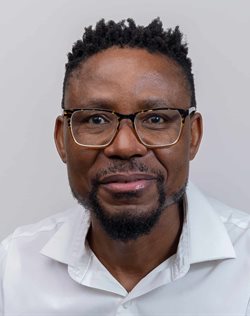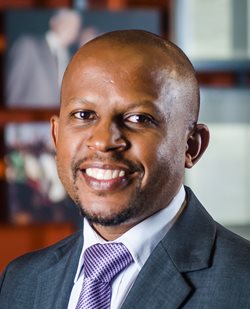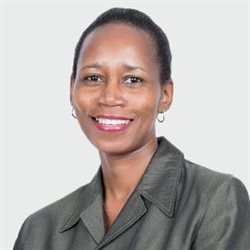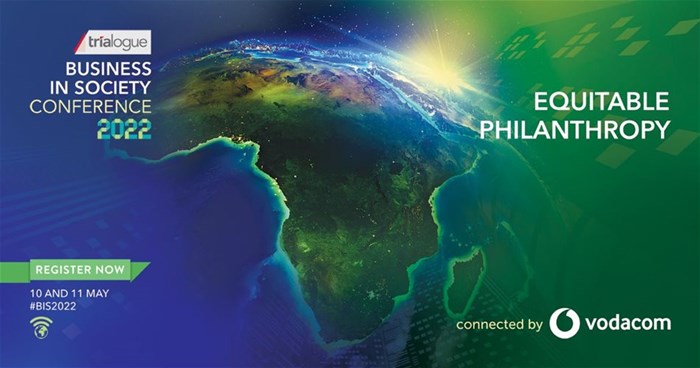Research supported by Vodacom Foundation, Safaricom and the Vodafone Foundation reveals why
donor resources for Africa tend to go to Northern-based rather than African-led civil society
organisations. Civil and private sector leaders discussed how Africa can liberate itself from
international donor dependency at a recent conference.
Among the many devastating effects of the Covid-19 pandemic, approximately 115 million people fell below the poverty line in 2020, according to the World Bank – most of them situated in South Asia and sub-Saharan Africa.
There is little doubt that African countries have been among the hardest hit – but although donor funding increased during the pandemic, just 5.2% of US foundation funding for Africa currently goes to African-led non-profit organisations (NPOs). This is common among Northern-based donors, who prefer to support international organisations with reach and influence, but not necessarily an intimate knowledge of community needs.
‘Decolonising’ philanthropy
At the 2022 Trialogue Business in Society conference, civil and private sector leaders discussed how Africa could liberate itself from international donor dependency. Panellists included Bheki Moyo, director of the Centre on African Philanthropy and Social Investment (CAPSI), Sello Hatang, chief executive of the Nelson Mandela Foundation, and Takalani Netshitenzhe, chief officer of Corporate Affairs for Vodacom Group and chairperson of the Vodacom Foundation.

Bheki Moyo, director of the Centre on African Philanthropy and Social Investment (Capsi)
Moyo, co-author of the 2021 research report Barriers to African Civil Society: Building the Sector’s Capacity and Potential to Scale Up funded by the Vodafone Foundation, says that while 90% of civil society organisations are dependent on international donor funding, we have begun to see a decrease in the inflows of donor funding, attributable to Covid-19 and the need to prioritise the domestic needs of countries. Moyo argued that Africans should heed the decrease in funding inflows as a warning, and focus on domestic resource mobilisation strategies. He also highlighted social entrepreneurship as an opportunity through which organisations can pivot to new ways of generating income.

Sello Hatang, chief executive of the Nelson Mandela Foundation
This was echoed by Hatang, who used the Nelson Mandela Foundation as an example of how non- profits can successfully raise funding at home. According to Hatang, prior to the Covid-19 pandemic, the Nelson Mandela Foundation received 80% of its funding from international donors. This changed dramatically in the aftermath of Covid-19, with international funders now contributing only 40% of the foundation’s budget.
Power relations between donors and non-profit organisations
The relationship between donors and recipients of donor funding can be fraught with power imbalances. The more funds there are to disperse, the greater the need to ensure transparency and accountability. This can sometimes lead to unnecessary red tape, negatively impacting on the work of civil society.
The report findings show that while there is value in philanthropy given its ability be flexible and facilitate risk taking in ways government and other big institutions might not be able to, many smaller organisations do not have the governance, processes and language that they need to access donor funding.

Takalani Netshitenzhe, chief officer of corporate affairs for Vodacom Group and chairperson of the Vodacom Foundation
Netshitenzhe acknowledges the negative impact power imbalances and bureaucracy can have on the work of civil society, explaining how Vodacom is reducing these as a donor. “Our group CEO bemoans the bureaucracy, especially when there is a humanitarian crisis. We have now started simplifying our processing by onboarding as many non-profit organisations as we can in our system, so we’re able to quickly disperse funds to previously approved NPOs quickly.”
Netshitenzhe also underscores the value of understanding what each donor and non-profit organisation brings to the relationship, and the importance of honesty and integrity from both parties. “We are redefining the relationship with our partner NPOs to create symbiotic relationships. As Vodacom, we are not created to deal with social issues and humanitarian crises, we need delivery partners. The organisations we support know societal challenges because they are on the ground. They are our ears and eyes and they also hold us accountable on promises that we make of creating a better future through sustainable partnerships,” she says.
Overcoming barriers to effective implementation
In Africa, the private sector is slowly coming to look at NPOs as partners, but there is work to be done – the relationship is still top-down and dictated by the private sector. However, companies and NPOs can collaborate across several areas, particularly corporate social investment, facilitating joint programming that really delivers impact. NPOs can function as a bridge between companies and communities.”
Moyo says in the ecosystem there are groups holding government and civil society accountable, grassroots groups that are survivalist, and groups that are more research-orientated should all work together for impact. “We need to understand and help these groups to create linkages and collaborate to reach sustainability.”
While South Africa may have a progressive Companies Act when it comes to Corporate Social Responsibility, Moyo says that when it comes to practice, there is still a lot to be done in order for government to facilitate a transformative and an effective way in which organisations need to implement programmes on the ground. “It is about a trialogue – government, non-profit and private sector working together. We have seen successes in education and health, and we need more examples.”












































